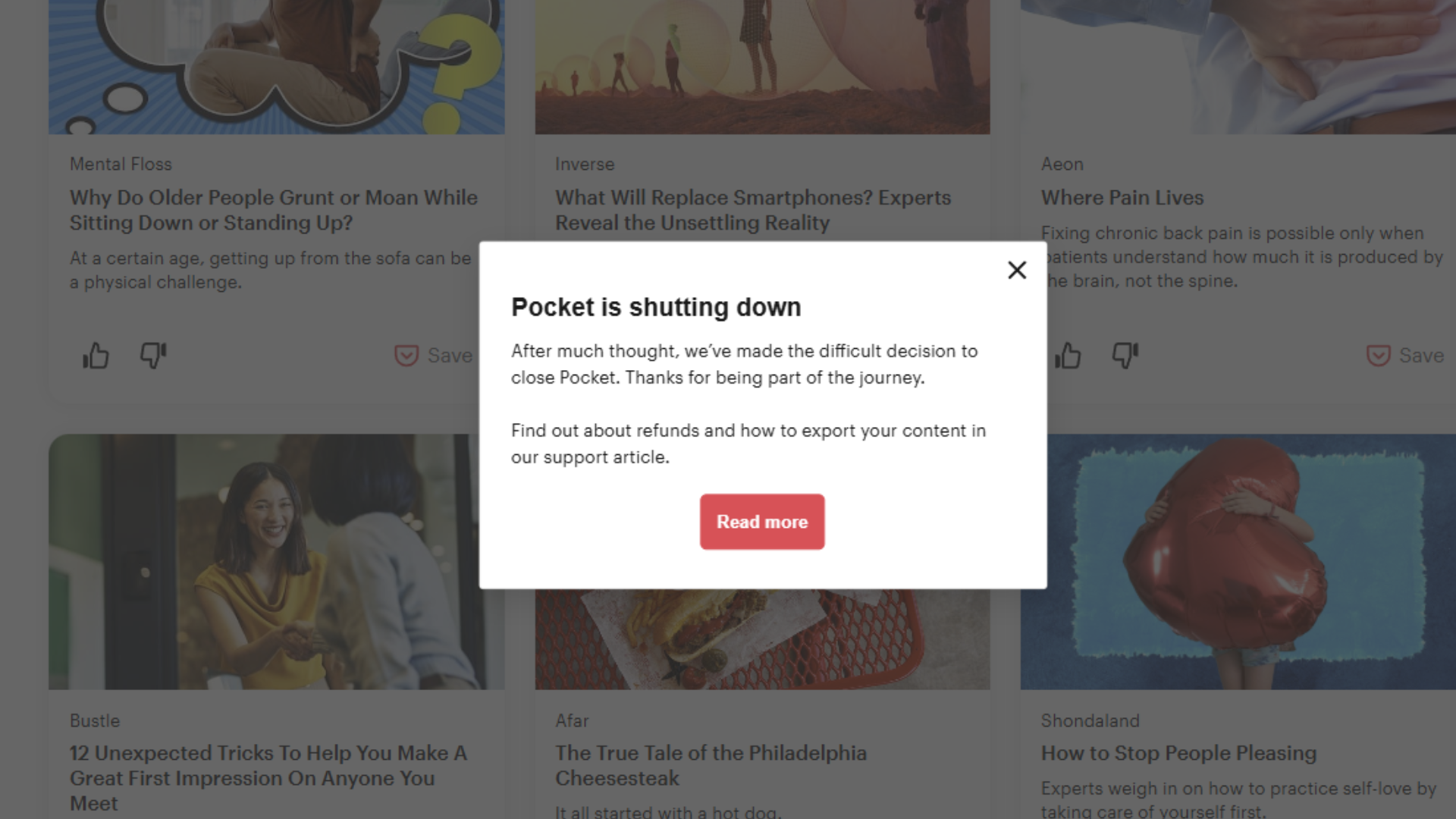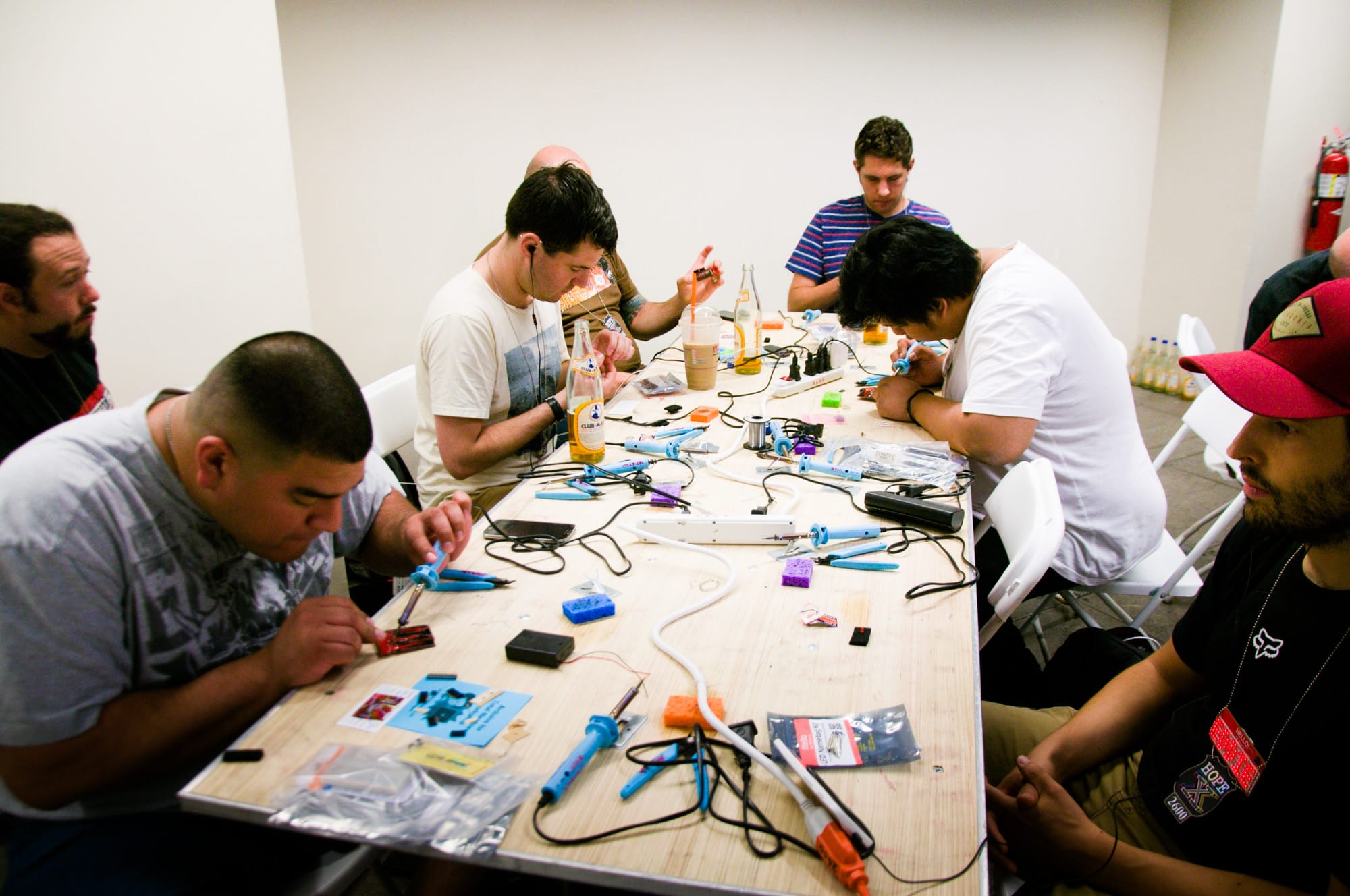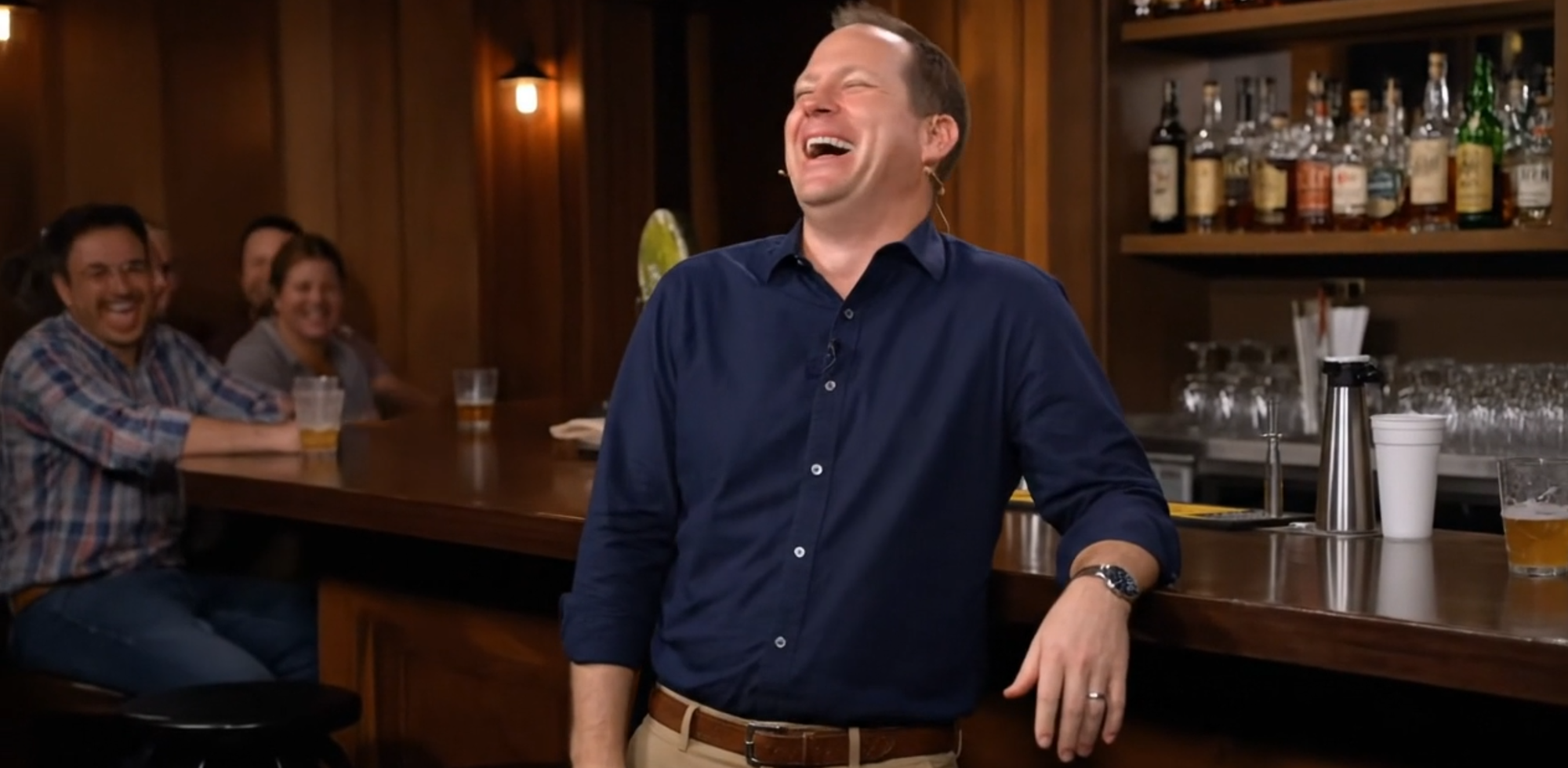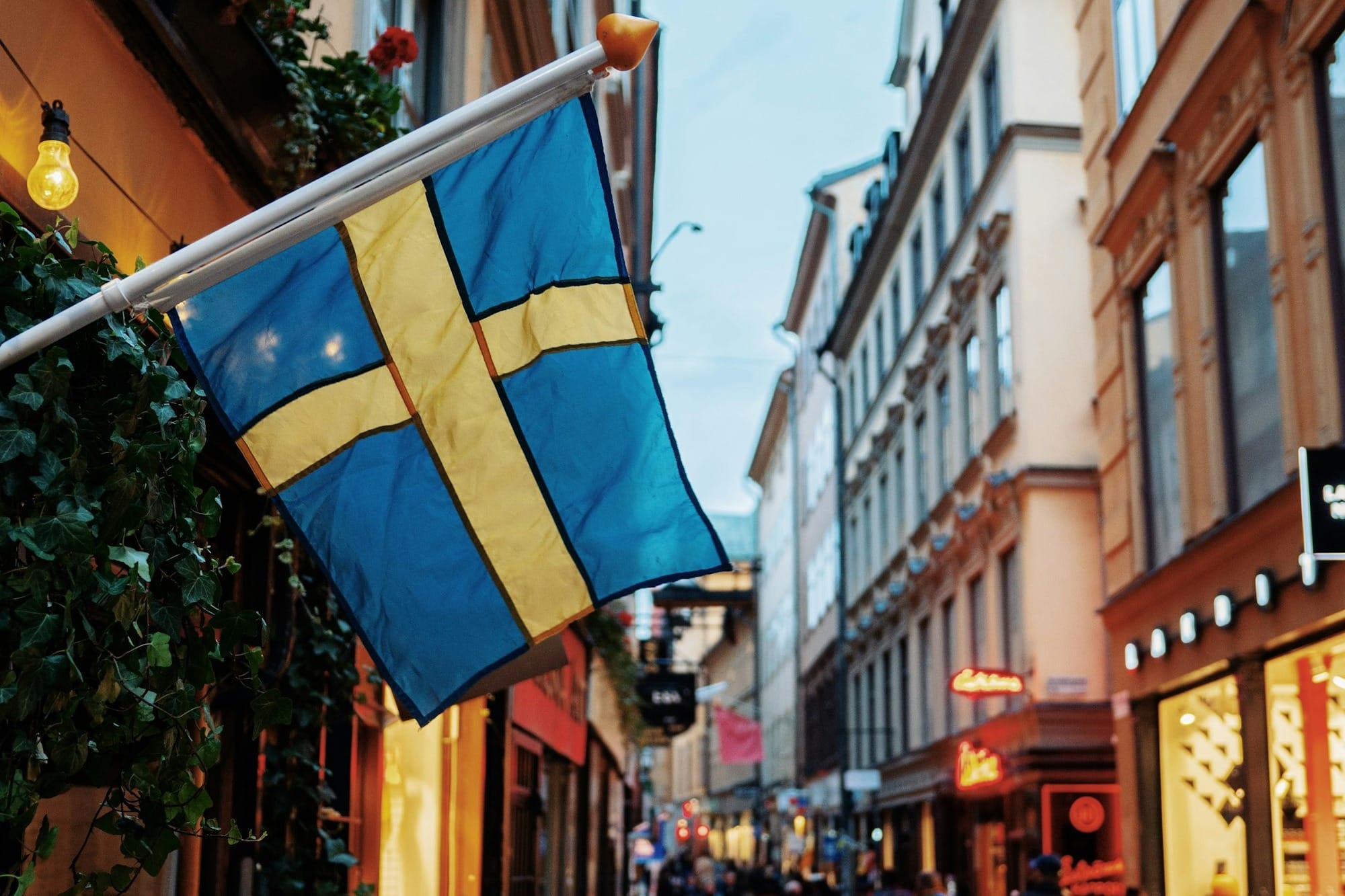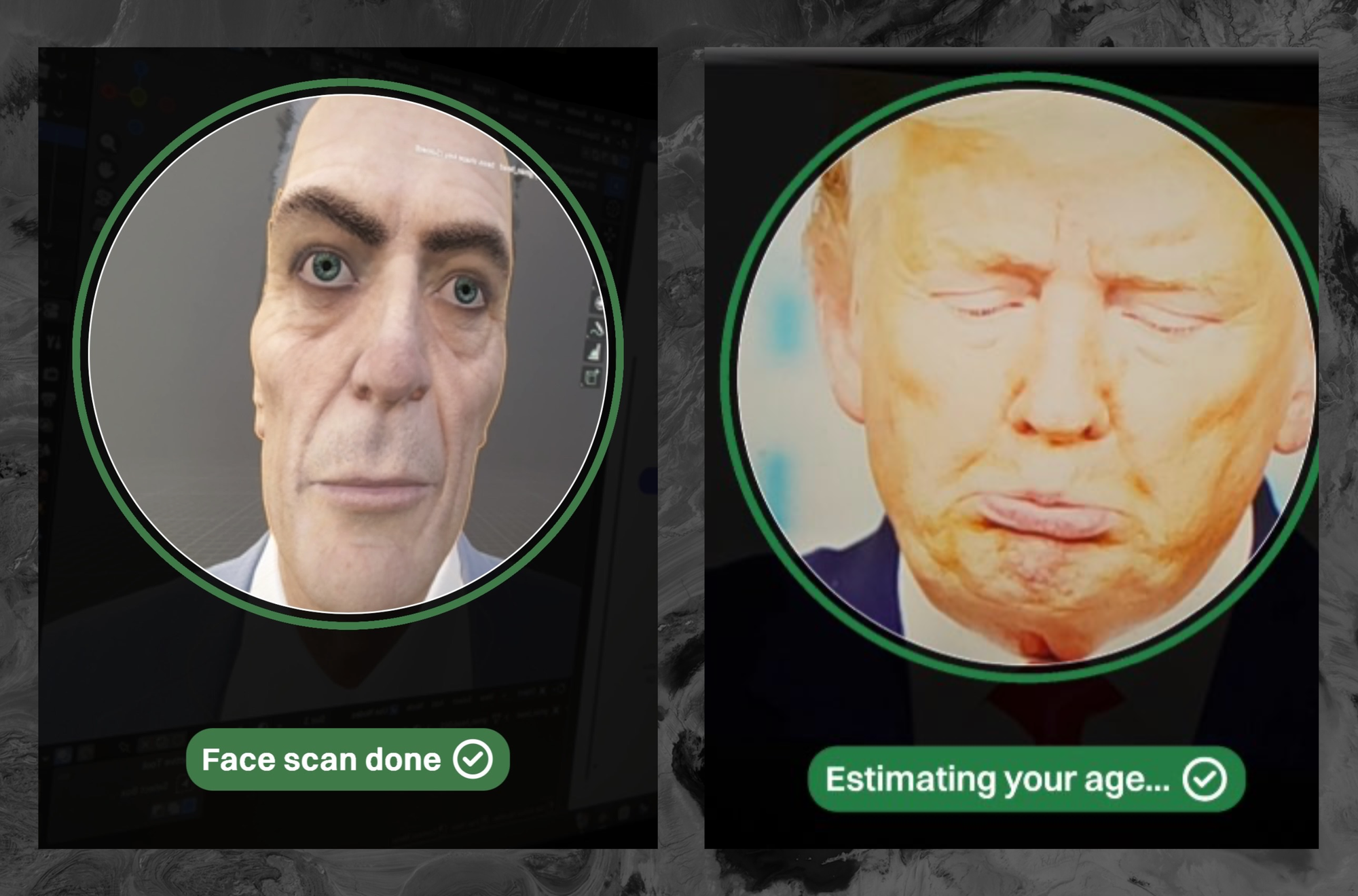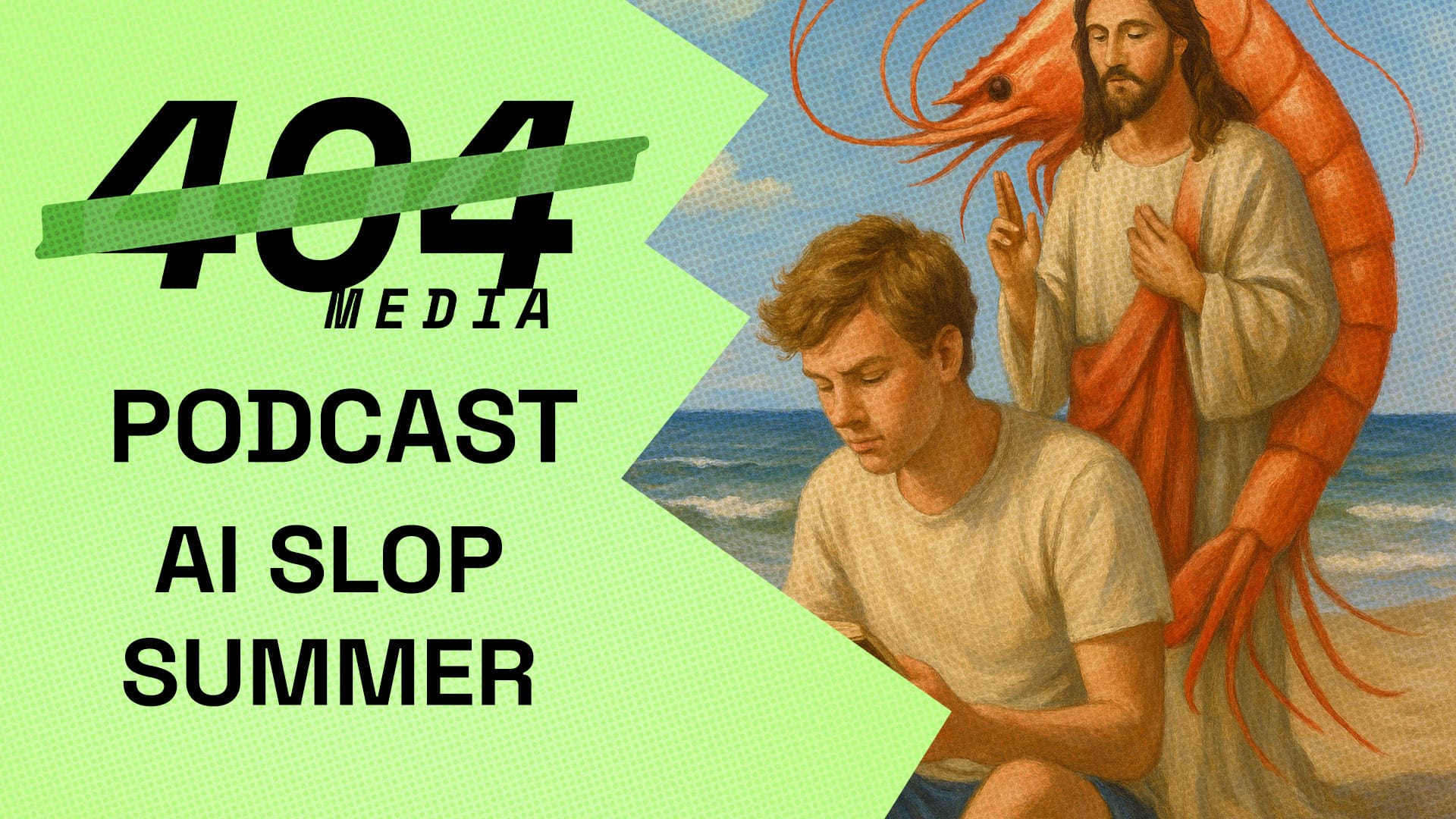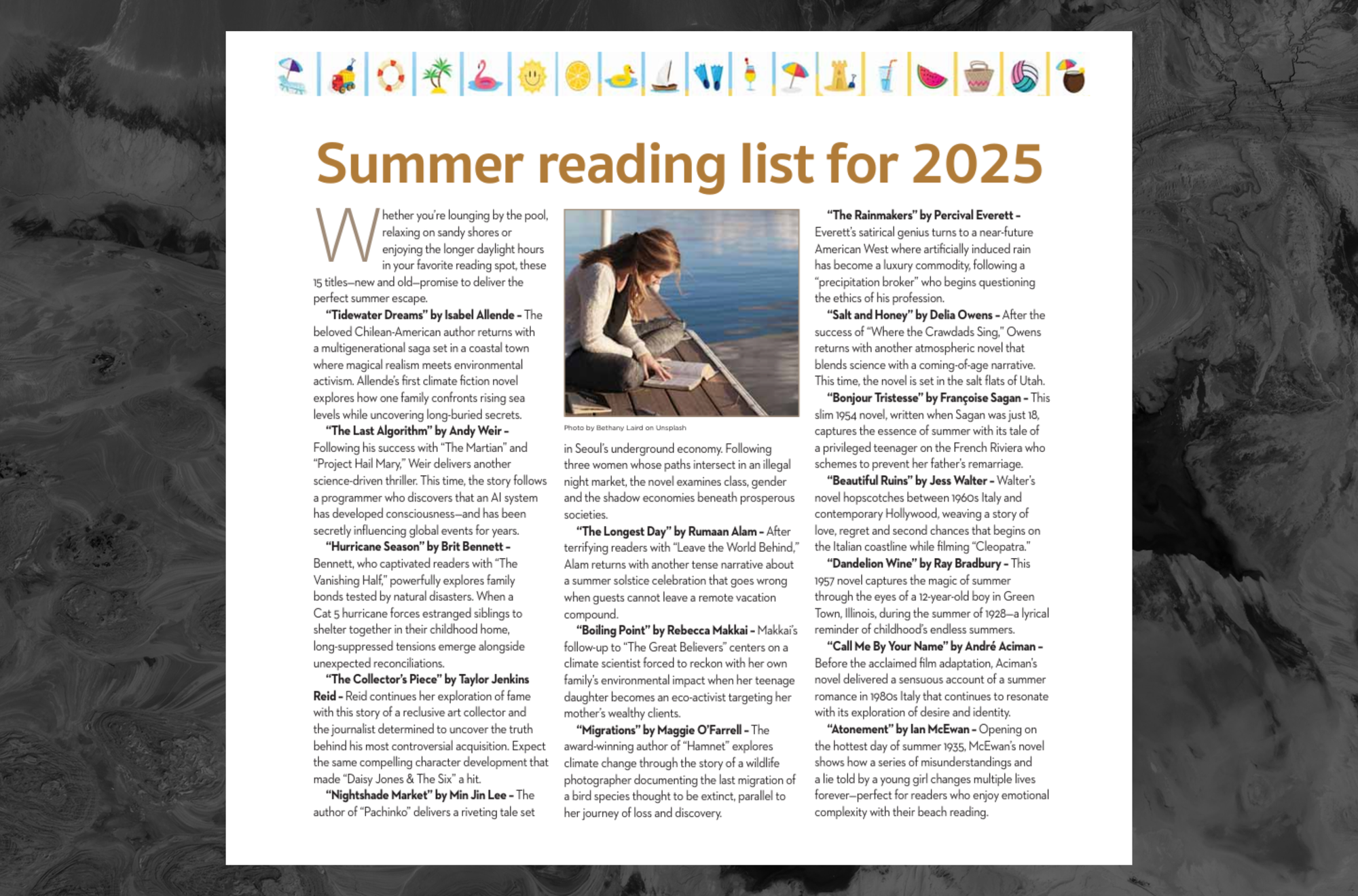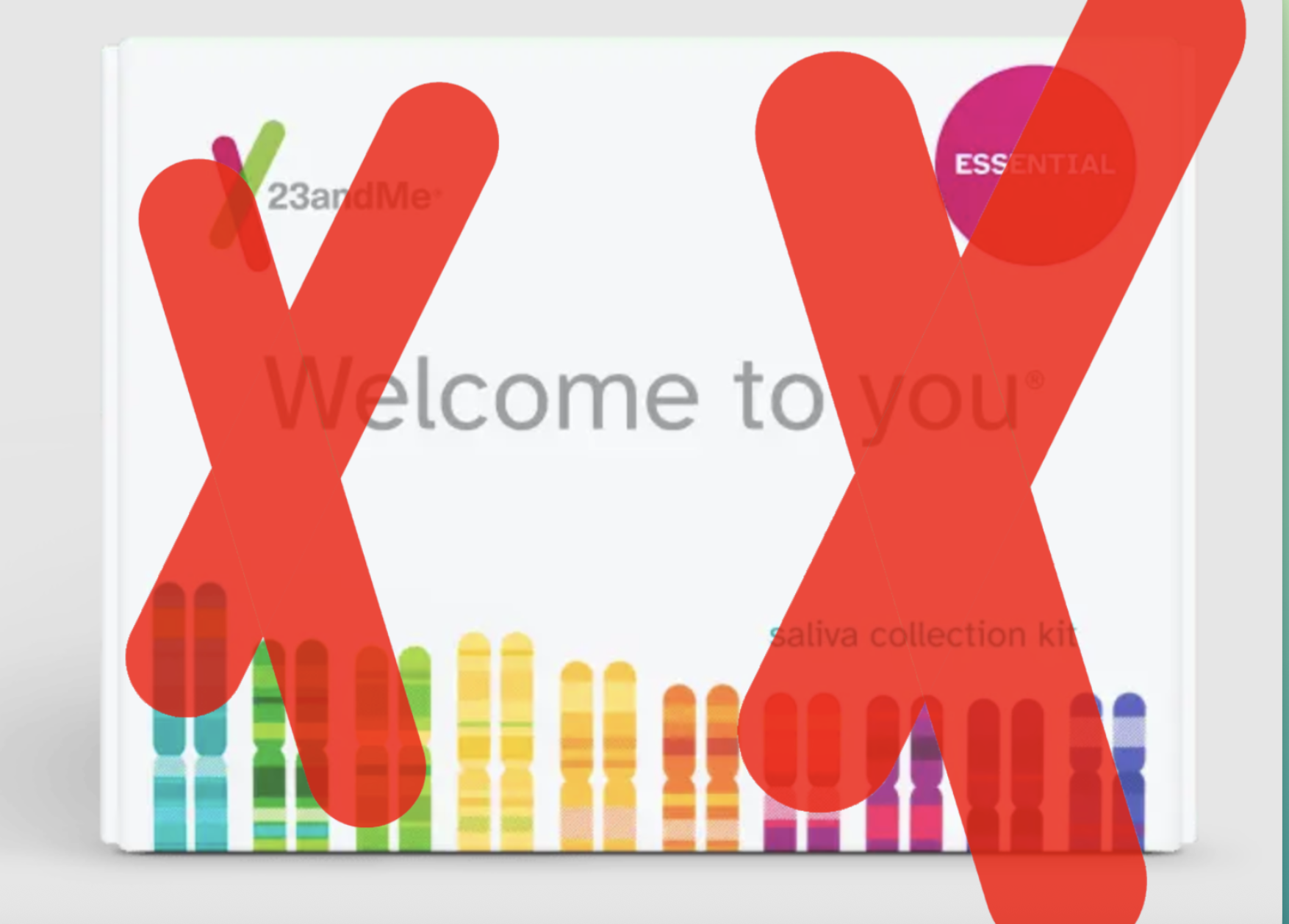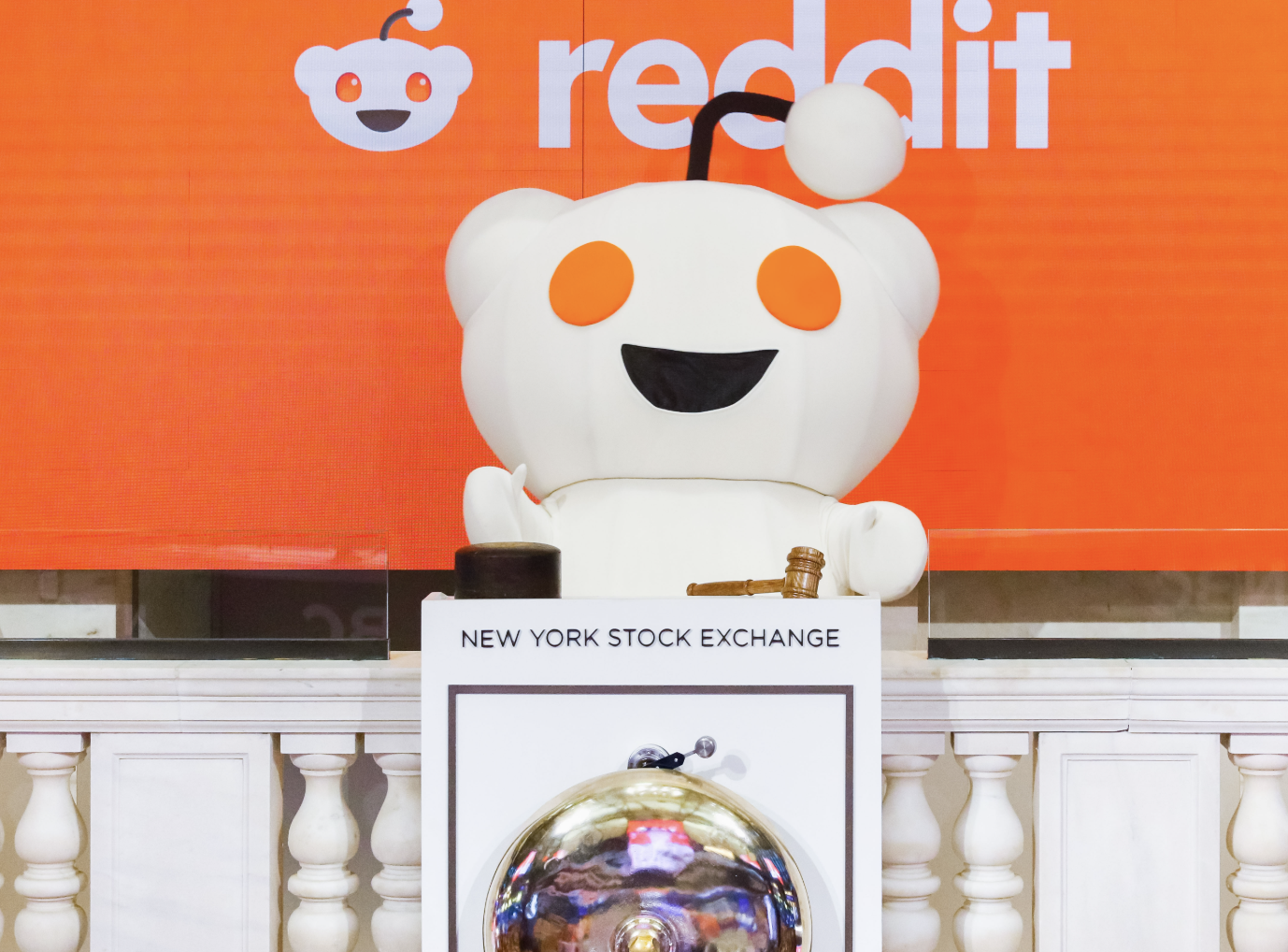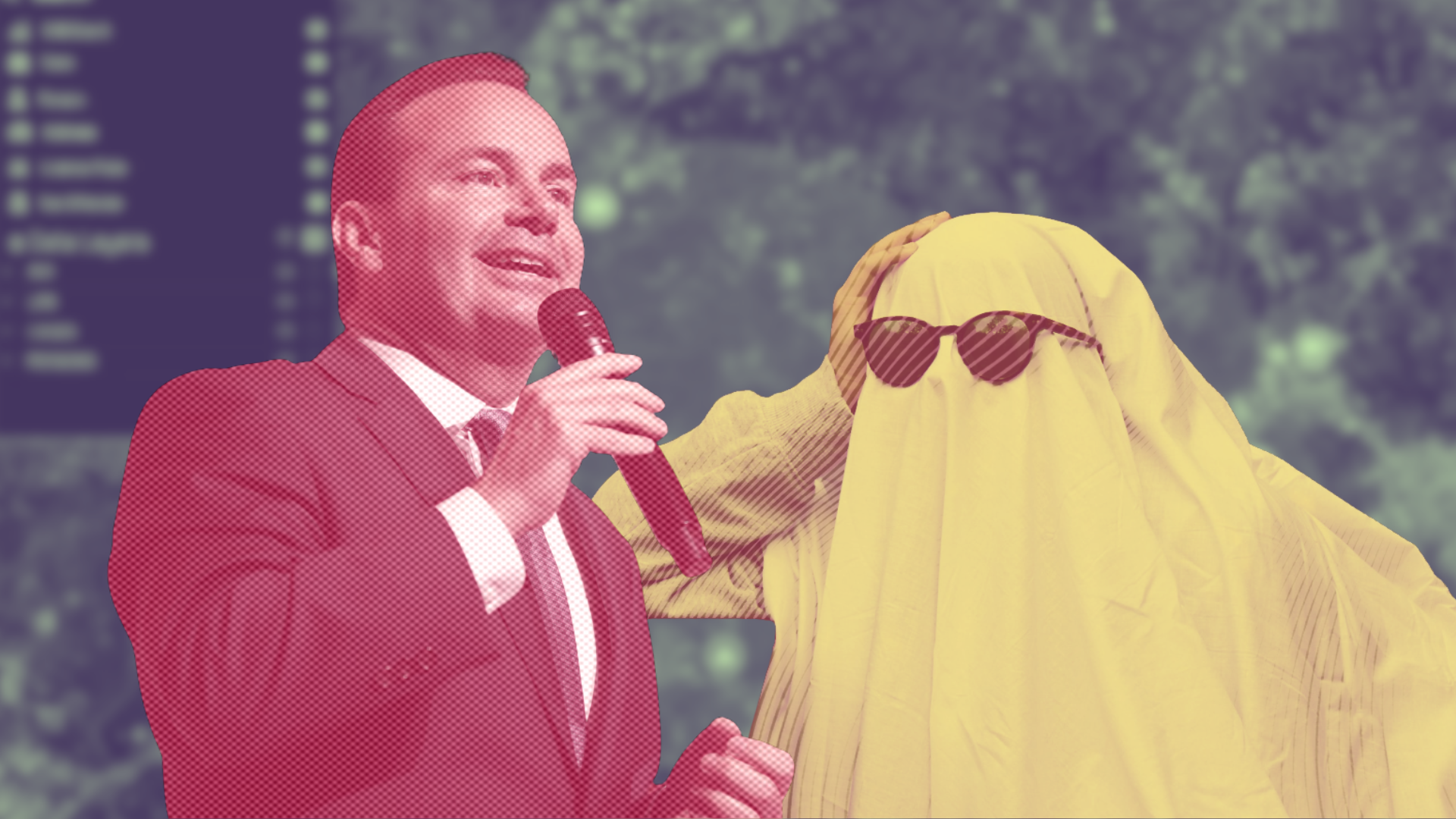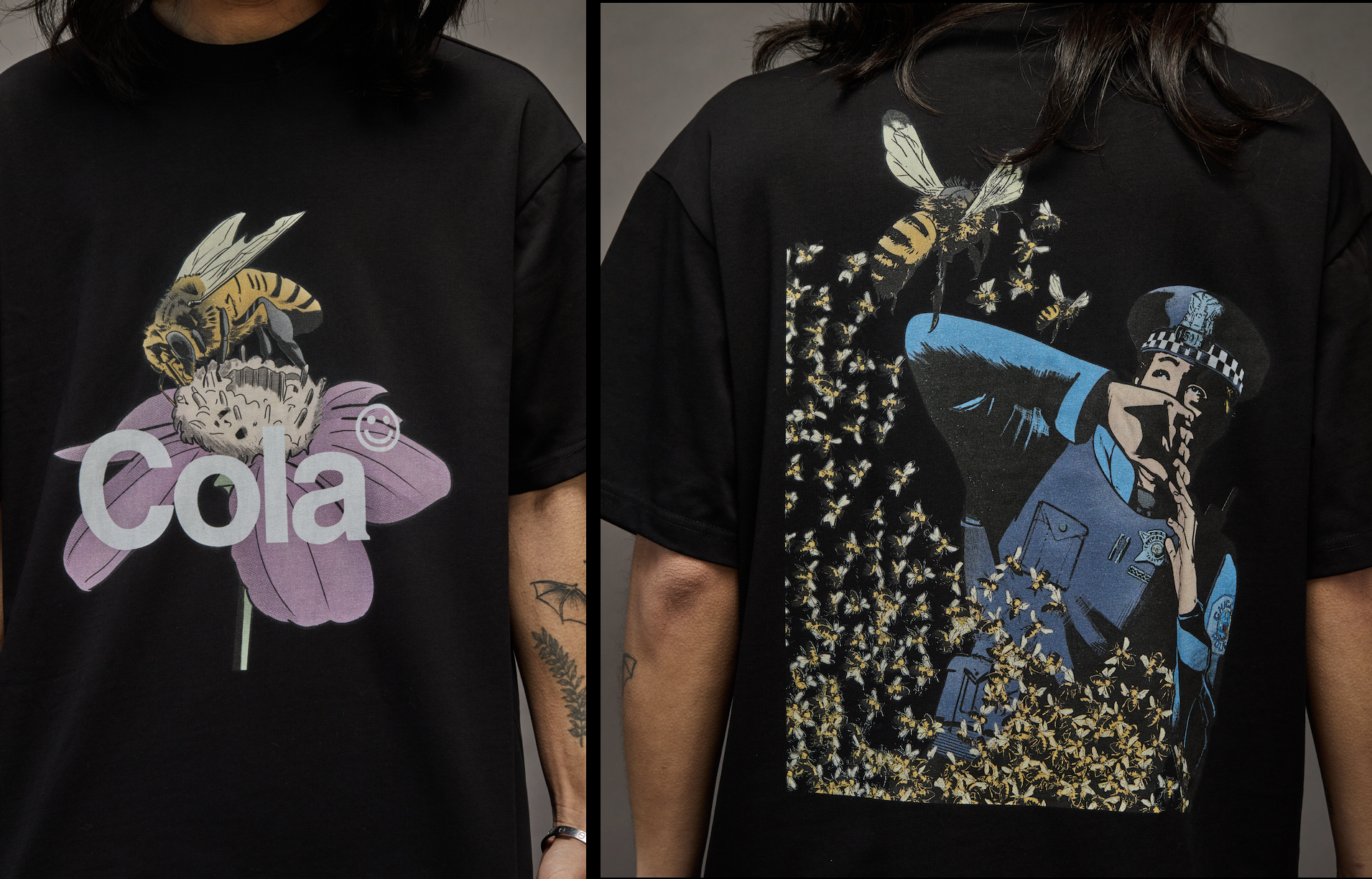
The U.S. has one of the largest nuclear arsenals in the world. Its dream has long been that it could launch these nukes and suffer no repercussions for doing so. Ronald Reagan called it the Strategic Defense Initiative. His critics called it Star Wars. Trump is calling it the “Golden Dome.” Scientists who’ve studied the issue say it’s pure fantasy.
One of Trump’s early executive orders tasked the Pentagon with coming up with an “Iron Dome for America” that could knock nuclear weapons and other missiles out of the sky before they hit U.S. targets. His supporters changed the name to the “Golden Dome” a few weeks later.
The idea—originally pioneered by Reagan—is to launch a bunch of satellites with interceptors that can knock missiles out of the sky before they hit America. Over the past seven decades, the U.S. has spent $400 billion on this dream. Thanks to Trump’s Golden Dome scheme, it’s about to spend $175 billions more.
In a press conference Tuesday, Trump announced that the project would start soon. “It’s something we want. Ronald Reagan wanted it many years ago but they didn’t have the technology,” Trump said during the press conference. He promised it would be “fully operation before the end of my term. So we’ll have it done in about three years.”
Trump claimed the system would be able to deal with all kinds of threats “Including hypersonic missiles, ballistic missiles, and advanced cruise missiles. All of them will be knocked out of the air. We will truly be completing the job that Ronald Reagan started 40 years ago, forever eliminating the missile threat to the American homeland,” he said. “The success rate is very close to 100 percent. Which is incredible when you think of it, you’re shooting bullets out of the air.”
Experts think this is bullshit.
In March, a team of volunteer scientists at the American Physical Society’s Panel on Public Affairs published a study that looked at how well missile defense could work. The report makes it clear that, no matter what the specifics, Trump’s plan for a Golden Dome is a fantasy.
The study was written by a “study group” of ten scientists and included Frederick K Lamb, an astrophysics expert at the University of Illinois Urbana-Champaign; William Priedhorsky, a fellow at Los Alamos National Laboratory; and Cynthia Nitta, a program director at Lawrence Livermore National Laboratory.
404 Media reached out to the scientists with questions about why it’s hard to shoot nukes out of the sky and why Reagan’s dream of putting lasers in space doesn’t seem to die. Below is a copy of our correspondence, which was written collectively by 8 of the scientists.It’s been edited for length and clarity.
404 Media: What were the questions the team set out to answer when it started this work?
In recent years, the U.S. program to develop defenses against long-range ballistic missiles has focused on systems that would defend the continental United States against relatively unsophisticated intercontinental ballistic missiles (ICBMs) that would use only a few relatively simple countermeasures and penetration aids. North Korea'’s ICBMs and ICBMs that might be deployed by Iran are thought to be of this kind.
Previous reports were cautious or even pessimistic about the technical feasibility of defending against even these relatively unsophisticated ICBMs. The current study sought to determine whether the technological developments that have occurred during the past decade have changed the situation.
💡
Do you know anything else about nukes or missile defense? I would love to hear from you. Using a non-work device, you can message me securely on Signal at +1 347 762-9212 or send me an email at [email protected]. What factor does the size of the United States play in building this kind of system?
There are three phases in the flight of an ICBM and its warhead: the boost phase, during which the ICBM is in powered flight, which lasts three to five minutes; the midcourse phase, which begins when the ICBM releases its warhead, which then travels on a ballistic trajectory in space toward its target for about 20 to 30 minutes; and the terminal phase, which begins when the warhead re-enters Earth’s atmosphere and lasts until the warhead strikes its target, which takes about 30 seconds.
The large geographical size of the United States is not especially important for defensive systems designed to intercept a missile or its warhead during the boost or midcourse phases, but it is a crucial factor for defensive systems designed to intercept the warhead during the terminal phase. The reason is that the geographical area that a terminal phase interceptor can defend, even if it works perfectly, is very limited.
Israel’s Iron Dome interceptors can only partially defend small areas against slow, homemade rockets, but this can be useful if the area to be defended is very small, as Israel is. But the lower 48 of the United States alone have an area 375 times the area of Israel.
The interceptors of the Patriot, Aegis, and THAAD systems are much more capable than those of the Iron Dome, but even if they were used, a very large number would be needed to attempt to defend all important potential targets in the United States. This makes defending even this portion of the United States using terminal interceptors impractical.
Why did you decide to narrowly focus on North Korean nukes?
We chose to focus on the threat posed by these ICBMs for several reasons. First, the United States has deployed a system that could only defend against a limited attack by long-range ballistic missiles, which was understood to mean an attack using the smaller number of less sophisticated missiles that a country such as North Korea has, or that Iran might develop and deploy. Developing and deploying a system that might be able to defend against the numerically larger and more sophisticated ICBMs that Russia and China have would be even more challenging.
A key purpose of this report was to explain why a defense against even the limited ICBM threat we considered is so technically challenging, and where the many technical difficulties lie. Our hope was that readers will come away with realistic views of the current capabilities of U.S. system intended to defend against the nuclear-armed ICBMs North Korea may have at present and an improved understanding of the prospects for being able to defend against the ICBMs North Korea might deploy within the next 15 years. In our assessment, the capability of the current U.S. system is low and will likely remain low for the next 15 years.
Why do you think the “dream” of this kind of system has such a strong hold on American leaders?
Ever since nuclear-armed intercontinental-range missiles were deployed in the 1950s, the United States (and its potential adversaries) have been vulnerable to nuclear attack. This is very unnerving, and has caused our leaders to search for some kind of technical fix that would change this situation by making it possible for us to defend ourselves against such an attack. Fixing this situation is also very appealing to the public. As a consequence, new systems for defending against ICBMs have been proposed again and again, and about half a dozen have been built, costing large amounts of money, in the hope that a technical fix could be found that would make us safe. But none of these efforts have been successful, because the difficulty of defending against nuclear-armed ICBMs is so great.
A constellation of about 16,000 interceptors would be needed to counter a rapid salvo of ten solid-propellant ICBMs like North Korea’s Hwasong-18, if they are launched automatically as soon as possible.
What are the issues with shooting down a missile midcourse?
The currently deployed midcourse defense system, the Ground-based Midcourse Defense, consists of ground-based interceptors. Most of them are based in Alaska but a few are in California. They would be fired when space-based infrared detectors and ground-based radars confirm that a hostile ICBM has been launched, using tracking information provided by these sensors. Once it is in space, each interceptor releases a single kill vehicle, which is designed to steer itself to collide with a target which it destroys by striking it. The relatively long, 20 to 30 minute duration of the midcourse phase can potentially provide enough time that more than one intercept attempt may be possible if the first attempt fails.
However, attempting to intercept the warhead during the midcourse phase also has a disadvantage. During this phase the warhead moves in the near-vacuum of space, which provides the attacker with opportunities to confuse or overwhelm the defense. In the absence of air drag, relatively simple, lightweight decoys would follow the same trajectory as the warhead, and the warhead itself might be enclosed within a decoy balloon.
Countermeasures such as these can make it difficult for the defense to pick out the warhead from among the many other objects that may accompany it. If the defense must engage all objects that could be warheads, its inventory of interceptors will be
depleted. Furthermore, the radar and infrared sensors that are required to track, pick out, and home on the warhead are vulnerable to direct attack as well as to high-altitude nuclear detonations. The latter may be preplanned, or caused by “successful” intercept of a previous nuclear warhead.
What about shooting the missile during the boost phase, before it’s in space?
Disabling or destroying a missile’s warhead during the missile’s boost phase would be very, very challenging, so boost-phase intercept systems generally do not attempt this.
Meeting this challenge requires a system with interceptors that can reach the ICBM within about two to four minutes after it has been launched. To do this, the system must have remote sensors that can quickly detect the launch of any threatening ICBM, estimate its trajectory, compute a firing solution for the system’s interceptor, and fire its interceptor, all within a minute or less after the launch of the attacking ICBM has been confirmed.
For a land-, sea-, or air-based interceptor to intercept an ICBM during its boost phase, the interceptor must typically be based within about 500 km of the expected intercept point, have a speed of 5 km/s or more, and be fired less than a minute after the launch of a potentially threatening missile has been detected. To be secure, interceptors must be positioned at least 100 to 200 km from the borders of potentially hostile countries
If instead interceptors were placed in low-Earth orbits, a large number would be needed to make sure that at least one is close enough to reach any attacking ICBM during its boost phase so it could attempt an intercept. The number that would be required is large because each interceptor would circle Earth at high speed while Earth is rotating beneath its orbit. Hence most satellites would not be in position to reach an attacking ICBM in time.
A constellation of about 16,000 interceptors would be needed to counter a rapid salvo of ten solid-propellant ICBMs like North Korea’s Hwasong-18, if they are launched automatically as soon as possible. If the system is designed to use 30 seconds to verify that it is performing correctly and that the reported launch was indeed an ICBM, determine the type of ICBM, and gather more tracking information before firing an interceptor, about 36,000 interceptors would be required.
With this kind of thing, you’re running out the clock, right? By the time you’ve constructed a system your enemies would have advanced their own capabilities.
Yes. Unlike civilian research and development programs, which typically address fixed challenges, a missile defense program confronts intelligent and adaptable human adversaries who can devise approaches to disable, penetrate, or circumvent the defensive system. This can result in a costly arms race. Which side holds the advantage at any particular moment depends on the relative costs of the defensive system and the offensive system adaptations required to evade it, and the resources each side is prepared to devote to the competition.
As the BMD Report says, the open-ended nature of the current U.S. missile defense program has stimulated anxiety in both Moscow and Beijing. President Putin has announced a variety of new nuclear-weapon delivery systems designed to counter U.S. missile defenses. As for China, the U.S. Department of Defense says that China’s People’s Liberation Army justifies developing a range of offensive technologies as necessary to counter U.S. and other countries’ ballistic missile defense systems.
